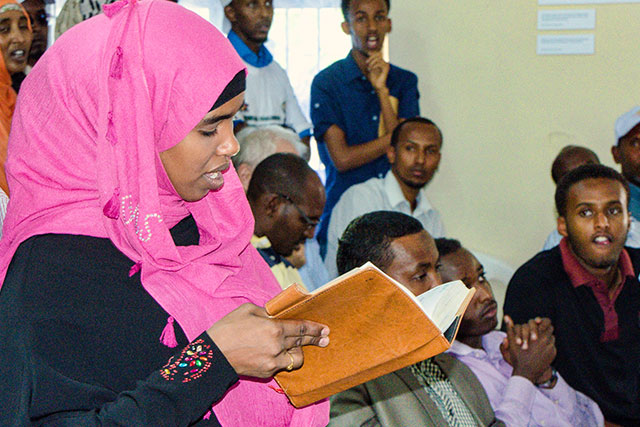CISP is committed to build bridges, facilitate routes to dialogue, promote strategic alliances, promote peace, integration, social justice and inclusion, ensure access to quality services and to humanitarian protection, support vulnerable and marginalized groups, find new solutions, support women empowerment, protect cultural heritage.
The principles and purpose of the International Committee for the Development of Peoples (CISP) are also summarized in the Declaration of Intent and Code of Conduct for Cooperation Programmes, endorsed in 1997.
The Declaration of Intent was updated in 2018 with contributions from CISP's country offices and the head office in Rome. The Declaration of intent of 2018 outlines the principles inspiring CISP’s intervention.
- Build bridges and promote dialogue and integration.
- Social Justice and Inclusion.
- Access to quality services.
- Guarantee equal opportunities.
- Ensure the right to humanitarian protection.
- Support to vulnerable and marginalized groups.
- Develop innovation and to find new solutions
- Gender equality.
- Migrations and the rights of migrants.
- Promote peace.
- Support the development of inclusive policies.
- Environment and climate change.
- Safeguard and promote cultural heritage.
The Code of Conduct provides CISP’s strategic guidelines with regard to its humanitarian, rehabilitation and development cooperation projects. The Code of Conduct is meant to aid the work of CISP’s staff in the formulation, implementation and monitoring of CISP’s projects.
The Code of Behavior is a set of principles outlining the integrity and ethic duties that every CISP's staff member is requested to respect and adhere to.
CISP pays significant attention to the monitoring and evaluation of its policies,
programmes and projects. CISP endeavors to continuously adapt and widen the scope of traditional
monitoring methods and tools to improve their effectiveness.
CISP's monitoring system is centered around four main pillars
- Traditional Project Cycle Management tools: with continuous sector and service assessments, an increased monitoring role of Somali staff and collaboration with local NGOs. CISP’s effort includes frequent and regular monitoring missions, continuous training of field staff and GPS mapping of interventions;
- Joint monitoring and collaboration with National and Regional Ministries and Institutions: building on its long term presence in Somalia, its understanding of the context, the good relationship with local authorities and government institutions, CISP aims at empowering its partners in the monitoring process, with particular focus on the impact of its activities, the efficiency of its processes and the relevance of its work.
- Community-based monitoring mechanisms: local communities, their representatives, committees and boards, have a relevant role in monitoring the activities and the services supported by CISP through consultations, C4D (communication for development) actions and feedback mechanisms.
- Stories from Somalia: a section of this website is part of CISP’s effort to improve continuous monitoring of its project activities and to gather data, feedback and visual evidence related to the relevance, efficiencies and impact of CISP's action in every project location.
The Management System indicates how the principles of transparency and accountability
are translated in the everyday administration and operations of the organization.
CISP Human Resources Manual is currently under review and will be posted in this
section as soon as possible.

